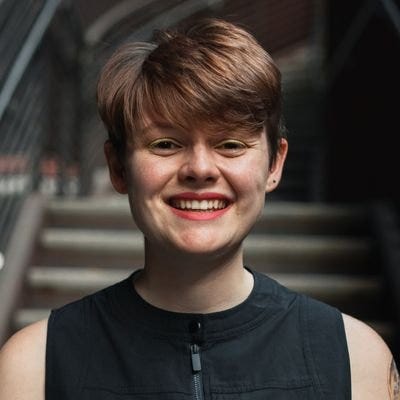As New Hampshire considers legalizing medically assisted suicide, also known as medically assisted dying (MAID), I want to focus on the impact this bill could have on people with disabilities and other vulnerable groups.
I was 19 years old the second time I attempted suicide. I had just been diagnosed with a chronic but not life-threatening illness; I was halfway through a music degree when I was rapidly losing about 70% of my hearing, and untreated anorexia was seriously affecting my health. In an appointment with a new therapist a few days after the suicide attempt, I explained my situation and the hopelessness I was feeling. The therapist nodded, then looked me in the eye and said the words I’ll never forget:
“If I were you, I’d probably kill myself.”

She wasn’t the first person to say this to me when my disability was beginning to become noticeable, but she was probably the last person I would have expected to hear. Now I work in disability policy, and nothing surprises me. I hear stories from other disabled people who were pressured by their doctors to sign DNRs because their quality of life was deemed poor because of their disability. I get messages on social media asking how to advocate for proper pain management if their doctors don’t believe the extent of their pain. I peruse story after story of people like Michael Hixson and Tinsley Lewis who had their treatment withdrawn, withheld, or threatened because of a widespread belief that they would rather be dead than disabled. That’s why I’m critical of policies that are biased toward ending, rather than preserving, the lives of people with severe disabilities—policies like legal assisted suicide.
Discussions about assisted suicide and incurable diseases in general have historically been framed as issues for older people. Young people “shouldn’t” be thinking about death, yet the adulthood of twenty-somethings like mine continues to be shaped by a deadly pandemic, mass shootings, and organized violence. We hear story after story of perfectly healthy young people who contracted COVID and are now permanently and severely disabled. One of my neighbors, a man in his early 30s, was the victim of a shooting that killed his 8-year-old son. He was left permanently disabled by the gunshot wound. Now is the time for young people to invest in the fair treatment of people with disabilities. Not only because we are human beings who deserve care, but also because young people are continually becoming more likely to become disabled or to care for disabled people.
Proponents claim that assisted suicide is only for “terminally ill people who are going to die anyway,” but they ignore the fact that many disorders can become terminal if left untreated. In a for-profit health care system, denial or simply delaying treatment can make previously manageable disorders terminal. Medical racism and transphobia increase barriers to care, with BIPOC and trans people reporting that they postpone or avoid care due to discrimination. Up to a quarter of people with chronic illnesses choose not to fill prescriptions to manage their conditions because of cost. The more vulnerable a person is, the more likely they are to be “induced” into assisted suicide. It doesn’t take direct coercion to make this happen. A system in which death seems like the best or only option for the most marginalized patients is not a system in which doctors need legal access to help us die.
As my colleague and prominent disability rights activist Anita Cameron has written, people with disabilities need “help to live, not tools to die.” Assisted suicide policies are not a measure of bodily autonomy or choice, but another tool that can be used to deny care to those who need it most.
Jules Good is a disability policy expert and activist living in Newmarket, New Hampshire.

